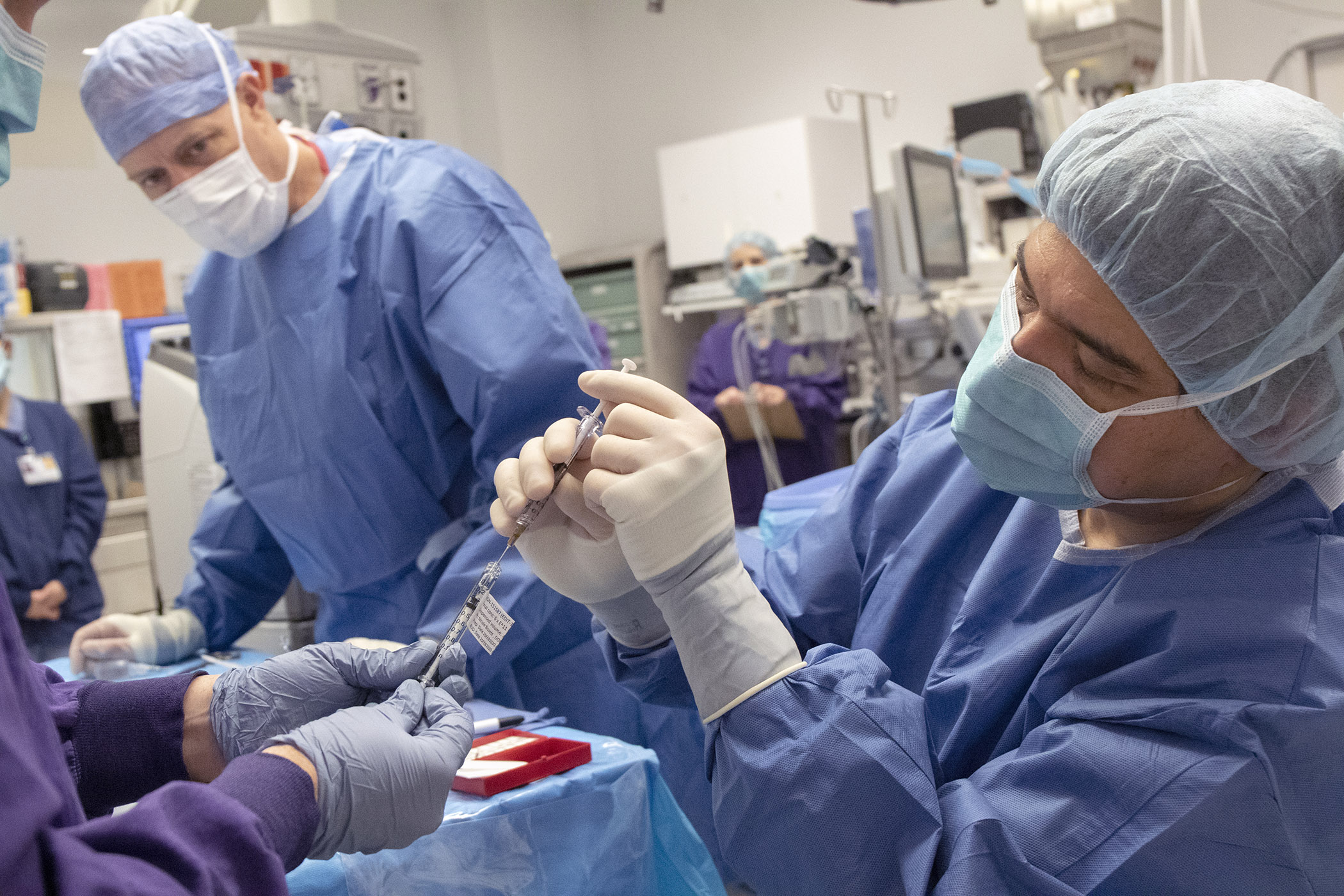CRISPR was just used in a bid to restore sight to a blind person

The gene-editing tool CRISPR has been used for the first time inside the body of an adult patient, in an attempt to cure a form of blindness.
The treatment: According to the Associated Press, doctors dripped just a few drops of a gene-editing mixture beneath the retina of a patient in Oregon who suffers from Leber congenital amaurosis, a rare inherited disease that leads to progressive vision loss.
Cells that take up the mixture can have their DNA permanently corrected, potentially restoring a degree of vision.
Important first: CRISPR is already being tested to modify blood cells outside the body, to treat cancer, sickle-cell disease, and other conditions. But attempting to cure diseases like muscular dystrophy or blindness, which affect tissues that can't be removed, engineered, and replaced, requires genetically modifying cells in the body.
Previously, scientists in China modified embryos using CRISPR, leading to the controversial birth of twin girls whose bodies contain genetic modifications. As well, at least one biohacker claimed to have self-injected CRISPR.
Commercial angle: The new study was sponsored by biotech companies Editas Medicine and Allergen and took place at Oregon Health & Science University.
“We believe that the ability to edit inside the body is going to open entire new areas of medicine and lead to a whole new class of therapies for diseases that are not treatable any other way," Charles Albright, chief scientific officer of Editas, told NPR.
Deep Dive
Biotechnology and health
How scientists traced a mysterious covid case back to six toilets
When wastewater surveillance turns into a hunt for a single infected individual, the ethics get tricky.
An AI-driven “factory of drugs” claims to have hit a big milestone
Insilico is part of a wave of companies betting on AI as the "next amazing revolution" in biology
The quest to legitimize longevity medicine
Longevity clinics offer a mix of services that largely cater to the wealthy. Now there’s a push to establish their work as a credible medical field.
There is a new most expensive drug in the world. Price tag: $4.25 million
But will the latest gene therapy suffer the curse of the costliest drug?
Stay connected
Get the latest updates from
MIT Technology Review
Discover special offers, top stories, upcoming events, and more.